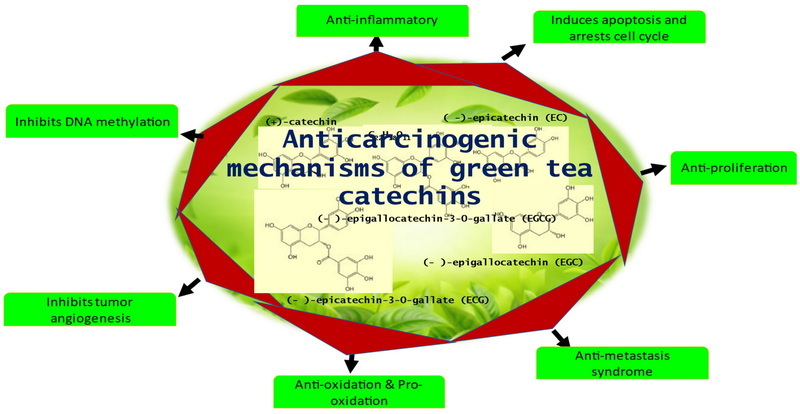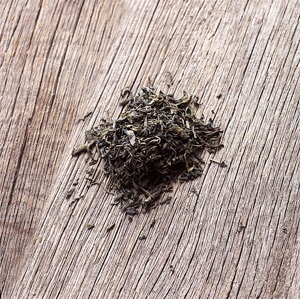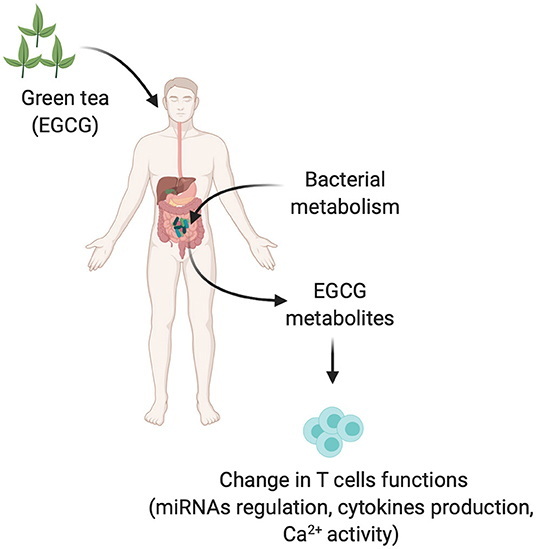Content Menu
● Understanding Green Tea Extract and EGCG
● Research on Green Tea Extract and CLL
● Recommended Dosage for CLL Patients
● Potential Benefits of Green Tea Extract for CLL
● Important Considerations and Precautions
● How to Take Green Tea Extract
● Potential Risks and Side Effects
● Combining Green Tea Extract with Other Treatments
● Future Research and Developments
● Conclusion
● Frequently Asked Questions
>> 1. Can I just drink green tea instead of taking green tea extract supplements?
>> 2. How long does it take to see effects from green tea extract in CLL patients?
>> 3. Are there any contraindications for taking green tea extract?
>> 4. Can green tea extract cure CLL?
>> 5. Are there any alternatives to green tea extract for CLL patients?
● Citations:
Chronic lymphocytic leukemia (CLL) is a type of cancer that affects the blood and bone marrow. In recent years, researchers have been exploring the potential benefits of green tea extract, particularly its main component epigallocatechin-3-gallate (EGCG), in managing CLL. This article will delve into the recommended dosage of green tea extract for CLL patients, its potential benefits, and important considerations.

Understanding Green Tea Extract and EGCG
Green tea extract is derived from the leaves of Camellia sinensis, the plant used to make green tea. The extract contains various compounds, with EGCG being the most abundant and potent catechin. EGCG has gained attention for its potential anti-cancer properties, including its effects on CLL cells.
Research on Green Tea Extract and CLL
Several studies have investigated the effects of green tea extract, specifically EGCG, on CLL. A phase II clinical trial conducted by Mayo Clinic researchers showed promising results[1][6]. The study found that an extract of green tea appeared to have clinical activity with low toxicity in CLL patients.
Dr. Tait Shanafelt, a hematologist at Mayo Clinic and lead author of the study, stated, "Although only a comparative phase III trial can determine whether EGCG can delay progression of CLL, the benefits we have seen in most CLL patients who use the chemical suggest that it has modest clinical activity and may be useful for stabilizing this form of leukemia, potentially slowing it down"[6].
Recommended Dosage for CLL Patients
Based on the available research, the following dosage recommendations have been suggested for CLL patients:
1. In the phase II clinical trial, patients were given 2000 mg of EGCG twice daily, for a total of 4000 mg per day[7][11].
2. This dosage is equivalent to drinking approximately 40 cups of green tea per day[11].
3. The treatment duration in the study was six months[7].
It's crucial to note that this dosage is significantly higher than what one would typically consume through drinking green tea and should only be taken under medical supervision.
Potential Benefits of Green Tea Extract for CLL
Research has indicated several potential benefits of green tea extract for CLL patients:
1. Reduction in leukemia cells: Studies have shown that EGCG can reduce the survival of CLL leukemic cells[1][6].
2. Stabilization of the disease: Green tea extract may help stabilize CLL, potentially slowing down its progression[6].
3. Low toxicity: The extract appears to have clinical activity with low toxicity, making it a potentially safer option compared to some conventional treatments[1][6].
4. Delay in disease progression: In early-stage CLL, EGCG supplementation was able to reduce the absolute leukocyte count[9].

Important Considerations and Precautions
While green tea extract shows promise for CLL patients, there are several important factors to consider:
1. Medical supervision: It's crucial to consult with a healthcare provider before starting any green tea extract regimen, especially at high doses[11].
2. Liver function monitoring: Regular monitoring of liver enzymes, particularly ALT and AST, is necessary to ensure the extract doesn't negatively impact liver health[11][5].
3. Potential side effects: Common side effects may include gastrointestinal issues, headaches, and sleep problems[5][8][10].
4. Interaction with other medications: Green tea extract may interact with certain medications, including blood thinners and some chemotherapy drugs[8].
5. Quality of the supplement: Ensure you're using a high-quality, standardized green tea extract supplement[7].
How to Take Green Tea Extract
If you and your healthcare provider decide to try green tea extract for CLL, consider the following guidelines:
1. Timing: Some sources suggest taking the extract on an empty stomach for better absorption, while others recommend taking it with food to minimize gastrointestinal side effects[11].
2. Divided doses: The total daily dose is typically split into two doses, one in the morning and one in the afternoon[11].
3. Duration: In clinical trials, the extract was typically taken for six months[7]. However, the appropriate duration may vary depending on individual circumstances.
4. Hydration: Ensure adequate hydration when taking green tea extract supplements.
Potential Risks and Side Effects
While green tea extract is generally considered safe for most people, it's important to be aware of potential risks and side effects:
1. Liver toxicity: In rare cases, high doses of green tea extract have been associated with liver problems[2][5][13].
2. Caffeine-related side effects: These may include anxiety, irritability, insomnia, and increased heart rate[5][8][10].
3. Gastrointestinal issues: Nausea, vomiting, diarrhea, and abdominal pain have been reported[12].
4. Iron absorption: Green tea may interfere with iron absorption, which could be a concern for some individuals[8].
Combining Green Tea Extract with Other Treatments
Some research suggests that green tea extract may have additive or synergistic effects when combined with conventional CLL treatments:
1. Chemotherapy: EGCG has shown additive and synergistic effects with conventional chemotherapy in some studies[9].
2. Vitamin D: Supplementation with both vitamin D and EGCG may have complementary effects in delaying disease progression in early-stage CLL[9].
3. Curcumin: The combination of EGCG and curcumin has shown promise in laboratory studies on CLL cells[4].
However, it's crucial to discuss any combination of treatments with your healthcare provider to ensure safety and efficacy.
Future Research and Developments
While the current research on green tea extract for CLL is promising, more studies are needed to fully understand its efficacy and optimal use:
1. Phase III trials: Larger, randomized controlled trials are necessary to confirm the benefits observed in earlier studies[6].
2. Long-term effects: Further research is needed to determine the long-term effects of high-dose green tea extract supplementation.
3. Combination therapies: More studies are required to explore the potential of combining green tea extract with other treatments for CLL.
4. Personalized medicine: Future research may help identify which CLL patients are most likely to benefit from green tea extract supplementation.
Conclusion
Green tea extract, particularly its component EGCG, shows promise as a potential complementary treatment for chronic lymphocytic leukemia. The current research suggests that a dosage of 2000 mg of EGCG twice daily may have beneficial effects for CLL patients, including reducing leukemia cells and potentially slowing disease progression. However, this high dosage should only be taken under close medical supervision due to potential side effects and the need for liver function monitoring.
While the results are encouraging, it's important to remember that green tea extract is not a substitute for conventional CLL treatments. Instead, it may be considered as part of a comprehensive treatment plan developed in consultation with healthcare providers. As research continues, we may gain a better understanding of how to optimally use green tea extract in the management of CLL.

Frequently Asked Questions
1. Can I just drink green tea instead of taking green tea extract supplements?
While drinking green tea is generally beneficial for health, the amount of EGCG used in CLL studies is equivalent to drinking about 40 cups of green tea per day[11]. This is not practical or safe to consume as a beverage. Therefore, concentrated green tea extract supplements are used to achieve the high doses studied in CLL research.
2. How long does it take to see effects from green tea extract in CLL patients?
The duration can vary among individuals. In clinical trials, patients typically took the extract for six months[7]. Some patients may notice changes sooner, while others may take longer. Regular monitoring by a healthcare provider is essential to assess the effects.
3. Are there any contraindications for taking green tea extract?
Green tea extract may not be suitable for everyone. It's contraindicated for people with severe caffeine sensitivity, liver problems, or those taking certain medications like blood thinners[8]. Always consult with a healthcare provider before starting any new supplement regimen.
4. Can green tea extract cure CLL?
No, green tea extract is not a cure for CLL. While it shows promise in potentially slowing disease progression and reducing leukemia cells, it should be considered as a complementary approach to be used alongside standard treatments under medical supervision[6].
5. Are there any alternatives to green tea extract for CLL patients?
While green tea extract has shown promise, other natural compounds are also being studied for their potential benefits in CLL. These include vitamin D, curcumin, and omega-3 fatty acids[9]. However, like green tea extract, these should only be used under medical supervision and not as a replacement for standard treatments.
Citations:
[1] https://newsnetwork.mayoclinic.org/discussion/green-tea-extract-appears-to-keep-cancer-in-check-in-majority-of-cll-patients/
[2] https://www.urmc.rochester.edu/encyclopedia/content?contenttypeid=19&contentid=greenteaextract
[3] https://connect.mayoclinic.org/discussion/chronic-lyphocetic-leukemia/
[4] https://aacrjournals.org/clincancerres/article/15/4/1123/74457/Turmeric-and-Green-Tea-A-Recipe-for-the-Treatment
[5] https://www.drugs.com/mtm/green-tea.html
[6] https://www.sciencedaily.com/releases/2010/06/100607101702.htm
[7] https://pmc.ncbi.nlm.nih.gov/articles/PMC3902473/
[8] https://www.webmd.com/vitamins/ai/ingredientmono-960/green-tea
[9] https://pubmed.ncbi.nlm.nih.gov/28534346/
[10] https://www.medicalnewstoday.com/articles/269538
[11] https://cllsociety.org/2016/04/37-trillion-reasons-eat-healthy-diet/
[12] https://www.vumc.org/poison-control/toxicology-question-week/march-12-2021-what-are-adverse-effects-green-tea-extract
[13] https://www.tga.gov.au/news/safety-alerts/camellia-sinensis-green-tea-extract






























